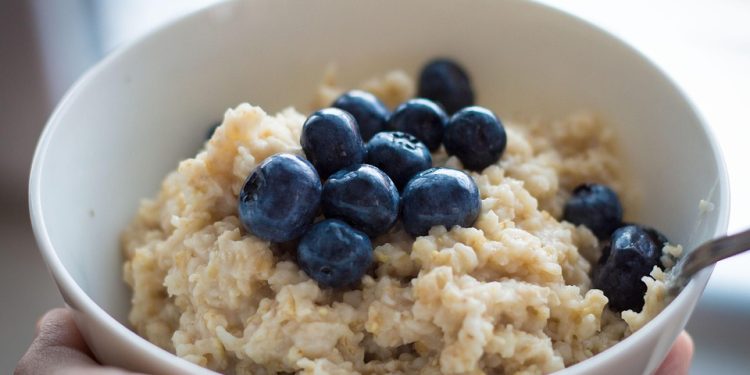The Hormonal Symphony: How They Influence Weight
Hormones act as chemical messengers, orchestrating various bodily functions, including weight management. When this intricate system is disrupted, weight loss becomes an uphill battle. Let’s explore some key players:
Insulin: The Blood Sugar Regulator
Insulin’s primary role is to transport glucose from your bloodstream into cells for energy. Insulin resistance, a condition where cells become less responsive to insulin, leads to elevated blood sugar levels. This, in turn, triggers the pancreas to produce even more insulin, contributing to weight gain, particularly around the abdomen. Excess insulin promotes fat storage and hinders fat burning.
Example: Consuming a diet high in processed carbohydrates and sugary drinks can lead to insulin resistance over time.
Leptin: The Satiety Hormone
Leptin, produced by fat cells, signals to the brain that you’re full, regulating appetite and energy expenditure. However, in some individuals, particularly those with obesity, leptin resistance can develop. This means the brain doesn’t receive the “full” signal, leading to overeating and weight gain.
Example: Chronic inflammation, often associated with processed foods, can interfere with leptin signaling.
Ghrelin: The Hunger Hormone
Ghrelin, secreted by the stomach, stimulates appetite. When you’re dieting or restricting calories, ghrelin levels tend to increase, making you feel hungrier and potentially sabotaging your weight loss efforts. Sleep deprivation also elevates ghrelin levels.
Example: Poor sleep habits can lead to increased ghrelin production, making you crave unhealthy snacks.
Cortisol: The Stress Hormone
Cortisol, released in response to stress, plays a vital role in regulating blood sugar, blood pressure, and inflammation. Chronic stress leads to consistently elevated cortisol levels, which can promote fat storage, particularly in the abdominal region. High cortisol levels also increase cravings for sugary and fatty foods.
Example: A demanding job and lack of relaxation techniques can contribute to chronic stress and elevated cortisol levels.
Thyroid Hormones: The Metabolic Regulators
The thyroid gland produces hormones (T3 and T4) that regulate metabolism, affecting how your body uses energy. Hypothyroidism, a condition where the thyroid gland is underactive, can lead to a slowed metabolism, weight gain, fatigue, and difficulty losing weight.
Example: An autoimmune condition like Hashimoto’s thyroiditis can cause hypothyroidism.
Estrogen and Progesterone: The Female Hormones
Estrogen and progesterone play crucial roles in a woman’s reproductive health and also influence weight distribution. Fluctuations in these hormones, particularly during menopause, can lead to weight gain, especially around the abdomen. Estrogen dominance, where estrogen levels are relatively high compared to progesterone, can also contribute to weight gain.
Example: During menopause, declining estrogen levels can lead to a decrease in muscle mass and a slower metabolism, contributing to weight gain.
Testosterone: The Male (and Female) Hormone
While primarily known as a male hormone, testosterone is also present in women and plays a role in muscle mass and metabolism. Low testosterone levels in both men and women can lead to decreased muscle mass, increased fat storage, and reduced energy levels.
Example: Aging can lead to a natural decline in testosterone levels in men.
Identifying Hormonal Imbalances: Signs and Symptoms
Recognizing potential hormonal imbalances is the first step towards addressing them. Some common signs and symptoms include:
-
- Unexplained weight gain or difficulty losing weight
-
- Fatigue and low energy levels
-
- Changes in appetite and cravings
-
- Sleep disturbances
-
- Mood swings and irritability
-
- Brain fog and difficulty concentrating
-
- Digestive issues
-
- Changes in menstrual cycle (for women)
-
- Hair loss or thinning
-
- Skin problems (acne, dryness)
If you experience several of these symptoms, consulting a healthcare professional for hormone testing is recommended. Common tests include blood tests for thyroid hormones (TSH, T3, T4), insulin, cortisol, estrogen, progesterone, and testosterone.
Strategies for Balancing Hormones and Promoting Weight Loss
Addressing hormonal imbalances requires a multifaceted approach that includes lifestyle modifications and, in some cases, medical intervention. Here are some strategies to consider:
Dietary Adjustments: Fueling Your Body Right
-
- Prioritize whole, unprocessed foods: Focus on fruits, vegetables, lean proteins, and healthy fats.
-
- Limit processed carbohydrates and sugary drinks: These can contribute to insulin resistance and weight gain.
-
- Eat regularly: Avoid skipping meals to maintain stable blood sugar levels and prevent overeating.
-
- Increase fiber intake: Fiber promotes satiety and helps regulate blood sugar.
-
- Incorporate healthy fats: Omega-3 fatty acids, found in fatty fish and flaxseeds, can reduce inflammation and improve insulin sensitivity.
-
- Consider a lower carbohydrate diet: For some individuals, particularly those with insulin resistance, a lower carbohydrate diet may be beneficial for weight loss and blood sugar control.
Exercise: A Powerful Hormone Regulator
-
- Engage in regular physical activity: Aim for at least 150 minutes of moderate-intensity exercise or 75 minutes of vigorous-intensity exercise per week.
-
- Include both cardiovascular exercise and strength training: Cardio burns calories and improves insulin sensitivity, while strength training builds muscle mass, which boosts metabolism.
-
- Consider high-intensity interval training (HIIT): HIIT can be effective for burning fat and improving insulin sensitivity.
Stress Management: Calming the Cortisol Storm
-
- Practice relaxation techniques: Meditation, yoga, deep breathing exercises, and spending time in nature can help reduce stress and lower cortisol levels.
-
- Get enough sleep: Aim for 7-8 hours of quality sleep per night.
-
- Avoid overcommitting yourself: Learn to say no to commitments that cause unnecessary stress.
-
- Seek support: Talk to a therapist or counselor if you’re struggling to manage stress.
Sleep Optimization: Rest and Restore
-
- Establish a regular sleep schedule: Go to bed and wake up at the same time each day, even on weekends.
-
- Create a relaxing bedtime routine: Take a warm bath, read a book, or listen to calming music.
-
- Optimize your sleep environment: Make sure your bedroom is dark, quiet, and cool.
-
- Avoid caffeine and alcohol before bed: These can interfere with sleep.
Supplementation: Supporting Hormone Balance (Consult a Professional)
-
- Vitamin D: Plays a role in insulin sensitivity and hormone production.
-
- Magnesium: Important for blood sugar control and stress management.
-
- Omega-3 fatty acids: Reduce inflammation and improve insulin sensitivity.
-
- Probiotics: Support gut health, which can influence hormone balance.
-
- Adaptogens (Ashwagandha, Rhodiola): May help the body adapt to stress and regulate cortisol levels.
Important Note: Always consult with a healthcare professional before taking any supplements, especially if you have any underlying health conditions or are taking medications.
Medical Intervention: When Necessary
In some cases, lifestyle modifications may not be enough to fully address hormonal imbalances. Your doctor may recommend hormone replacement therapy (HRT) for conditions like hypothyroidism or menopause. They might also prescribe medications to manage conditions like insulin resistance or polycystic ovary syndrome (PCOS). It is crucial to work with a qualified healthcare provider to determine the best course of treatment for your individual needs.
The Long Game: Sustainable Weight Loss Through Hormonal Harmony
Weight loss is often viewed as a simple equation of calories in versus calories out. However, the hormonal component adds a layer of complexity that can significantly impact your results. By understanding how hormones influence your weight and implementing strategies to balance them, you can create a more sustainable and effective weight loss plan. Remember that consistency and patience are key. It takes time to rebalance hormones and see results. Work closely with your healthcare provider to monitor your progress and make adjustments as needed.
Conclusion
Don’t let hormonal imbalances sabotage your weight loss goals. Understanding the intricate relationship between hormones and weight is paramount. By adopting a holistic approach that encompasses diet, exercise, stress management, sleep optimization, and, when necessary, medical intervention, you can unlock the power of hormonal harmony and achieve sustainable weight loss, improved health, and enhanced well-being. Remember to consult with your healthcare provider for personalized guidance and support on your journey.
Frequently Asked Questions (FAQs)
Q: How do I know if my hormones are imbalanced?
A: Common signs include unexplained weight gain or difficulty losing weight, fatigue, changes in appetite, sleep disturbances, mood swings, and changes in menstrual cycles (for women). Consult your doctor for hormone testing.
Q: What kind of doctor should I see for hormone imbalances?
A: An endocrinologist specializes in hormone disorders. Your primary care physician can also perform initial hormone testing and refer you to a specialist if needed.
Q: Can diet alone balance my hormones?
A: Diet plays a crucial role in hormone balance, but it may not be sufficient to address all imbalances. Lifestyle modifications, stress management, and sometimes medical intervention are also necessary.
Q: Are hormone supplements safe?
A: Some hormone supplements may be beneficial, but it’s crucial to consult with a healthcare professional before taking any supplements, as they can interact with medications or have side effects.
Q: How long does it take to balance hormones?
A: It varies depending on the individual and the severity of the imbalance. It can take several weeks to months to see significant improvements.
Q: Can stress really affect my weight?
A: Yes! Chronic stress leads to elevated cortisol levels, which can promote fat storage, increase cravings for unhealthy foods, and disrupt other hormones.
Q: What are adaptogens and how can they help?
A: Adaptogens are natural substances that help the body adapt to stress and regulate cortisol levels. Examples include Ashwagandha and Rhodiola. Always consult your doctor before use.
Q: Is exercise really that important for hormone balance?
A: Yes, exercise plays a vital role! It improves insulin sensitivity, builds muscle mass, reduces stress, and can positively influence various hormones.
Q: Are there any specific foods I should avoid to balance my hormones?
A: Limiting processed foods, sugary drinks, and excessive amounts of refined carbohydrates is generally recommended, as these can contribute to insulin resistance and inflammation.
Q: I’m a woman going through menopause. Is weight gain inevitable?
A: While hormonal changes during menopause can contribute to weight gain, it’s not inevitable. Lifestyle modifications, such as diet, exercise, and stress management, can help manage weight during this transition. Discuss HRT options with your doctor if appropriate.












